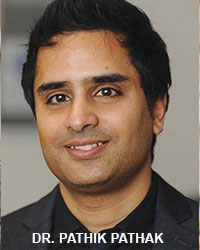In challenge-based learning, students don’t study discrete disciplines such as sociology/mathematics. They study them through the lens of global challenges such as climate change and clean energy.
 A raft of companies in the UK has declared they no longer have faith in university degree classifications. Hitherto, graduates with a 2:1 (upper second or 60 percent plus average) degree would automatically be shortlisted for recruitment. Now, in the contemporary era of grades inflation and mass numbers at universities, this tradition is increasingly being rejected by corporates. These companies aren’t small fry either. They include blue-chips such as IBM and Jaguar Land Rover, who have joined others including management consultants Ernst & Young and global books publisher Penguin Random House.
A raft of companies in the UK has declared they no longer have faith in university degree classifications. Hitherto, graduates with a 2:1 (upper second or 60 percent plus average) degree would automatically be shortlisted for recruitment. Now, in the contemporary era of grades inflation and mass numbers at universities, this tradition is increasingly being rejected by corporates. These companies aren’t small fry either. They include blue-chips such as IBM and Jaguar Land Rover, who have joined others including management consultants Ernst & Young and global books publisher Penguin Random House.
This recent announcement extends the trend of employers questioning correspondence between academic qualifications and job-readiness. If extended to its logical conclusion, it’s not inconceivable that in 10-15 years, a large percentage of employers of university graduates will decide to scrap their graduate employment programmes altogether and recruit students straight out of higher secondaries, as apprentices.
Although this is unlikely in the near future, there’s no doubt that for some subjects — particularly non-vocational liberal arts, social science and humanities programmes — scepticism about the ‘graduate premium’ is rising. While there’s still evidence that over a lifetime, degree holders earn more than diploma holders, graduate recruitment is becoming increasingly dependent on subjects studied, gender and class profile of graduates and, troublingly, wealth of their parents.
It is clear then, that universities need to evolve, and urgently. According to Prof. Caroline Boehm, an expert in innovation and creativity at the University of Staffordshire, this means embracing the age of university 3.0 and higher education institutions aligning with the needs of the 4th industrial revolution.
Boehm argues that in their infancy, universities were characterised by an ‘ownership’ paradigm, as an elite cadre of scholars dispensing knowledge to a small fraction of university going men who then chose select professions. Universities were built for that purpose, and some of that architecture remains even today: raised stages, rows pointed forward to the ‘sage on stage’, and students positioned as passive receptacles of information.
During phase 2.0, universities expanded massively, both within developed and developing countries, based on the belief that higher education enables upward social mobility. The number of universities and courses grew exponentially, as did the diversity of subjects. Disciplines were sub-divided and combined in new creative ways, at the same time the higher education sector became more systemised and regulated.
Boehm argues that in their latest avatar, universities will need to curate their learning environments and partnerships. In her words, “environment trumps content”. Rather than being physical centres of learning typified by the symbolic dominance of lecture theatres, universities will become diffuse and diverse spaces, venturing into cities and spaces around the world through partnerships.
In turn, that demands a new teaching-learning paradigm defined by project-based learning and whole person education. I describe that as challenge-based learning where students don’t study discrete disciplines such as sociology or mathematics, but approach these subjects through the lens of global challenges such as climate change, gender equality and clean energy.
Challenge-based learning could happen inside classrooms and beyond campuses, as academies partner with NGOs, social enterprises, governments and businesses. Students are challenged to adapt to new problem-solving and team working contexts, and are tasked with delivering real world projects rather than esoteric academic assignments. They work not only across disciplines, but across industry sectors and generations, learning the values of emotional intelligence and cross-cultural communication.
There are already some excellent examples of challenge-based education, including Monash University’s Global Challenges programme (Australia), EPICS at Purdue, SAGE at San Diego State University (both US), and our own Spark India of the University of Southampton (UK), which requires students to work with social enterprises and NGOs in Mumbai through the summer. What these programmes have in common is a focus on real world projects, varied interfaces with practitioners, work across disciplines and opportunities for students to see the world through the lens of global challenges, rather than merely through their chosen academic disciplines.
The future of higher education, in terms of research and teaching, depends on universities — not known for their agility — developing the capability and willingness to pivot to their third avatar, not merely to sit at the apex of the knowledge tree, but at intersections of a web of curated partnerships. Unless that happens, universities run the risk of being left behind by a world that’s moving faster than ever before.
(Dr. Pathik Pathak is the faculty director of social entrepreneurship and director, social impact lab, at the University of Southampton, UK)


























